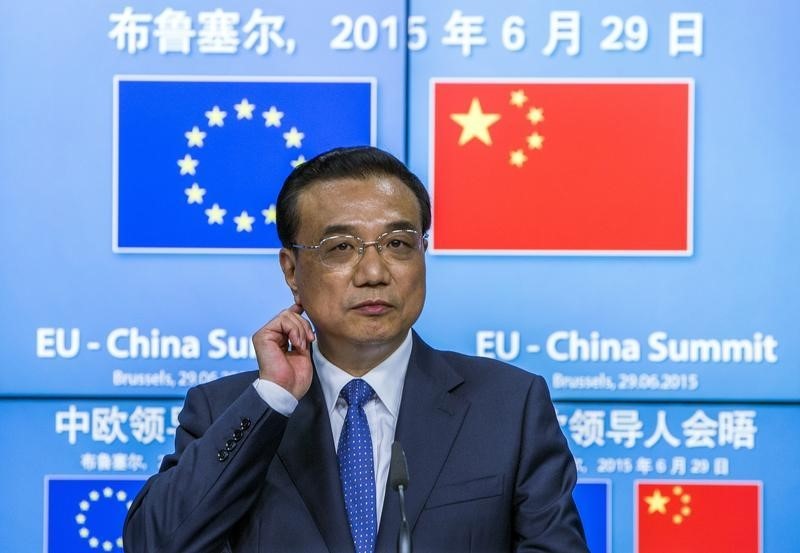BEIJING (Reuters) - Chinese Premier Li Keqiang on Thursday urged German Chancellor Angela Merkel to push the European Union to abide by its World Trade Organization (WTO) promises to Beijing, amid debate in Europe over whether to grant China market economy status.
Li, speaking to Merkel by telephone, said Germany should "properly resolve" the EU-China trade disputes as well as promote negotiations on an EU-China investment agreement, according to a statement on the Chinese government's website.
Li was quoted as telling Merkel, "We hope Germany pushes the EU to duly fulfil the relevant promises" laid out in the document on China's accession to the WTO.
He did not elaborate but the comments come a week after the European Union's 28 commissioners discussed for the first time the issue of granting China "market economy status" from December, which Beijing says is its right 15 years after it joined the WTO.
That status would make it harder for Europe to impose anti-dumping duties on Chinese goods sold at knock-down prices, changing the criteria for determining a fair price.
Li also told Merkel that China was "highly concerned" about the humanitarian issues surrounding Syria, and had provided humanitarian assistance to Syria and other countries.
Last year, during a trip to China, Merkel said Germany favoured granting China market economy status in principle, but that Beijing still had work to do, including further opening its public procurement markets.
Beijing insists the "market economy" designation should be granted automatically according to the pact struck when it joined the trade governing body in 2001, but a debate is brewing among China's key trade partners, including the EU and the United States over whether to do so.
The European Commission said any decision would have an impact on the European economy, but gave no details.
The EU is China's biggest trade partner, and China is second only to the United States for the EU. Chinese imports to the EU were worth 302 billion euros ($330 billion) in 2014, more than triple their level at the start of the century.
The steel industry in Europe, in particular, has been a fierce opponent of any loosening of trade barriers against China.

A group of about 30 European manufacturing sectors said granting market economy status to China would have a huge negative impact on European industry, citing a study that said doing so would put at risk 1.7 million to 3.5 million European jobs.